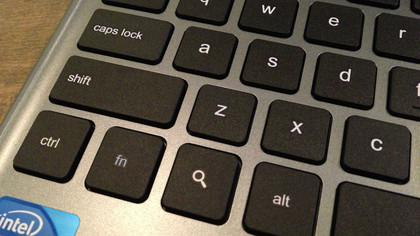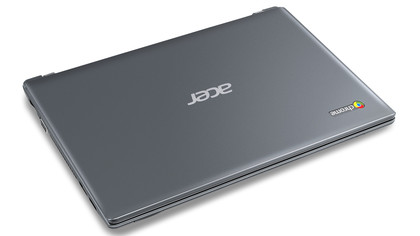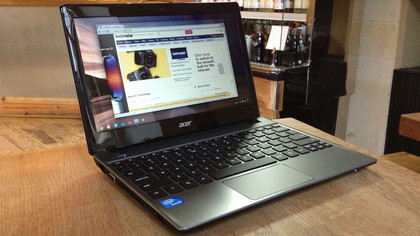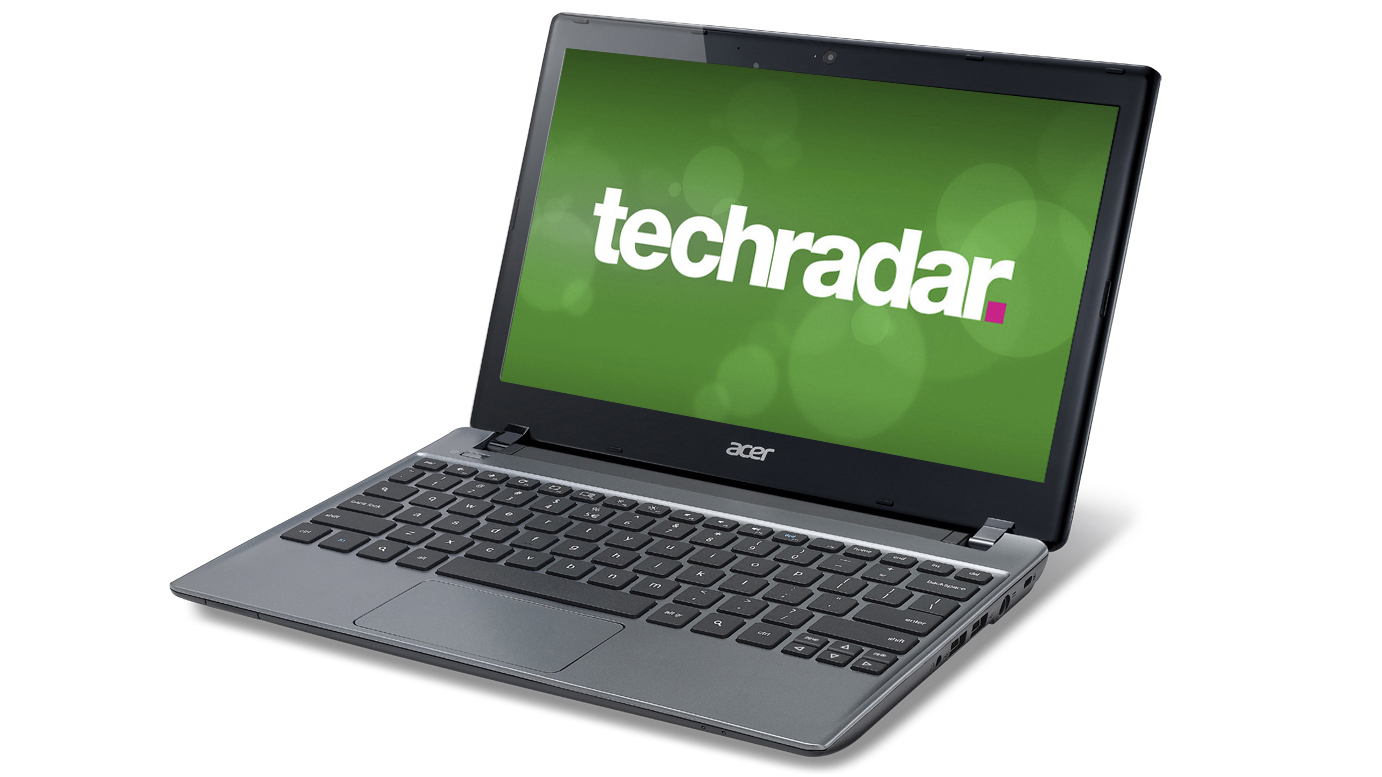Why you can trust TechRadar
Overall performance of the Acer C7 Chromebook is good. The Intel processor makes computationally intensive stuff such as playing HD video iPlayer streams or (and yes, this qualifies as 'computationally intensive' as far as a Chromebook is concerned) playing the Chrome-optimised version of Angry Birds pretty smooth. But the fact that it has a hard drive rather than an SSD means the whole thing feels more sluggish than it ought to.
So, although performance is acceptable once you settle down to doing something, whether that's writing in Google Docs, watching Netflix, or playing a simple game of Bejeweled, there are stutters and delays in getting to those tasks.
It's not something you can't live with, but having enjoyed the responsiveness of other Chromebooks, it's a shame to see the Acer C7 Chromebook lumbered with old-fashioned laptop problems.

You feel it in startup too. The Samsung Series 3 boots from cold in under 11 seconds, while the Acer C7 Chromebook barely scrapes in under 20. Again, it's not insupportable, but it's definitely not desirable.
Naturally, since it's designed primarily as a device to access web services, how fast it feels is also affected by the speed of your internet connection and how fast Chrome can render pages and run web apps.
As to the latter, Chrome is certainly speedy, and unless you're working with huge documents, you're unlikely to feel like the web apps are slow or getting in your way much more than you would with normal, locally-running programs.

And as to the former, well, it never felt like the 8Mbps broadband connection we used most often during testing, nor the significantly slower Wi-Fi in a few coffee shops, slowed us down much either. And, of course, even a souped-up Core i7 monster would have the same bottlenecks if you were using the same suite of online services.
Sign up to the TechRadar Pro newsletter to get all the top news, opinion, features and guidance your business needs to succeed!
Stability is good. We've had issues with occasional spontaneous reboots of Chromebooks in the past - which proved not to be as bad as they sound, since apps such as Google Docs do a terrific job of saving your work as you go - but the Acer C7 Chromebook just kept stoically soldiering on.
The keyboard, though, is very much a mixed bag. It feels dead and unresponsive; we tried to re-train our muscle memory to use lighter touches to compensate, but it never felt anything other than lacklustre.

And while it feels churlish to kvetch about this kind of thing in such a cheap laptop, we kept getting slightly distracted by the fact that, on our keyboard, the letters were printed a little off-centre.
There are compensations, mind you. Unlike with previous Chromebooks where the caps lock key is replaced with a search button - which proves handy if you can force yourself to use it, though you can always reassign it to caps lock in Settings - here, you not only get your caps lock key back in its usual place, you also get a search key on either side of the space bar.
